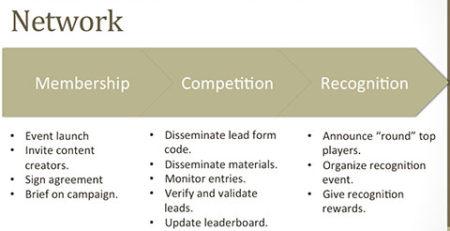Preparing a Digital Marketing Plan for MSMEs
There are many suggestions on how to go about the creation of a Digital Marketing Plan for MSMEs (micro and small medium enterprises). Here’s what I usually teach my students in the E-Commerce and Digital Marketing Mentoring Program for MSMEs (with Department of Trade and Industry – Cebu) and Rural Impact Sourcing 12-days Technical Training (with Department of Information and Communications Technology).
Step 1: Know what makes your brand fascinating.
Use your brand adjectives and marketing pillars as inputs in developing your communication program.
Reference: BrandFascination.com
Step 2: Your Value Proposition
What customer pains does your product or service resolved? What benefits does your product or service provide? Does this match your customer requirements?
Reference: Strategyzer
Step 3: Identify your target customer segment for the campaign.
Having a specific audience in mind gives you the opportunity to focus on the needs and wants of this segment. Allowing you focus in adding value to them.
Think about the process your customers go through at the awareness (when learning more about the problem), consideration (exploring solutions), decision stages (deciding on product / service options).
Reference: Hubspot
<iframe src=”https://player.vimeo.com/video/127163529?dnt=1&app_id=122963” width=”640″ height=”400″ frameborder=”0″ allow=”autoplay; fullscreen” allowfullscreen></iframe>
Step 4: Your Content & Blog Plan
Identify important pages your website will have including:
- About Us
- Contact Us
- Shop or Services
- Category 1
- Product or Service 1 (with 2 to 4 product photos and testimonial)
- Product or Service 2
- Product or Service 3
- Category 1
- Product or Service 1
- Product or Service 2
- Product or Service 3
- Category 1
- Blog
- News Category
- News 1
- News 2
- Awareness Category
- Awareness Post 1
- Awareness Post 2
- News Category
- Legal
- Terms & Conditions
- Refund & Returns Policy
- Privacy Policy
Ideally, a website must have 30 to 40 pages. IN addition to blog post, stories, articles, you can also create:
- Pages for bundled packages (combination of products or services).
- Pages for different sizes. (100 grams, 300 grams, 500 grams)
- Pages for volume offering (set of 10, set of 5).
Step 5: Your Website or Landing Page Content Plan
Build your online presence with a mobile-responsive website. Helps build your credibility and give information your target persona will need at the awareness, consideration, decision stages. It can have plug-ins including:
- SEO
- Security
- Shopping Cart
- Lead form
- Analytics
- Live Chat
- Social Media Sharing
Reference:
<iframe src=”https://player.vimeo.com/video/129105688?dnt=1&app_id=122963” width=”640″ height=”400″ frameborder=”0″ allow=”autoplay; fullscreen” allowfullscreen></iframe>
Step 6: Search Engine Optimization
Think about the how your prospects or customers use search engines (e.g. Google) go through at the awareness (when learning more about the problem), consideration (exploring solutions), decision stages (deciding on product / service options) of the buyer’s journey. Use the keywords and websites you’ll encounter as inspiration on how improve your website pages further.
Reference: Search Influencer Boot Camp
Step 7: Set-Up a Customer Relationship Management System
Building a database of prospects and customers is an important activity for any MSME.
An ideal system will allow you:
- Receive leads (from lead forms).
- Add team members.
- Record deals
- Send email campaign.
Reference: Customer Relationship Management 101
Step 8: Social Media Presence
Have online presence on platforms like:
- Google+
- YouTube
Follow relevant profiles and build following by sharing useful content related to your product or service categories.
Step 9: Social Media Content Plan and Creation
Create useful content at the awareness (when learning more about the problem), consideration (exploring solutions), decision stages (deciding on product / service options) of the buyer’s journey. Check out social media pages of similar products and services to you to analyze their content types and sharing approaches.
<iframe src=”https://player.vimeo.com/video/133050425?dnt=1&app_id=122963” width=”640″ height=”400″ frameborder=”0″ allow=”autoplay; fullscreen” allowfullscreen></iframe>
Step 10: Execute a 21-day or 66-days Digital Marketing Campaign
Generate awareness-consideration-decision content good enough for a 21-day or 66-days digital marketing campaign. Use Facebook Pages publishing tools and other social media content creation platforms where you can upload the content and set a publishing schedule.
Doing this right gives you the opportunity to focus on user engagement, follow through, analytics monitoring, and content creation.



Leave a Reply